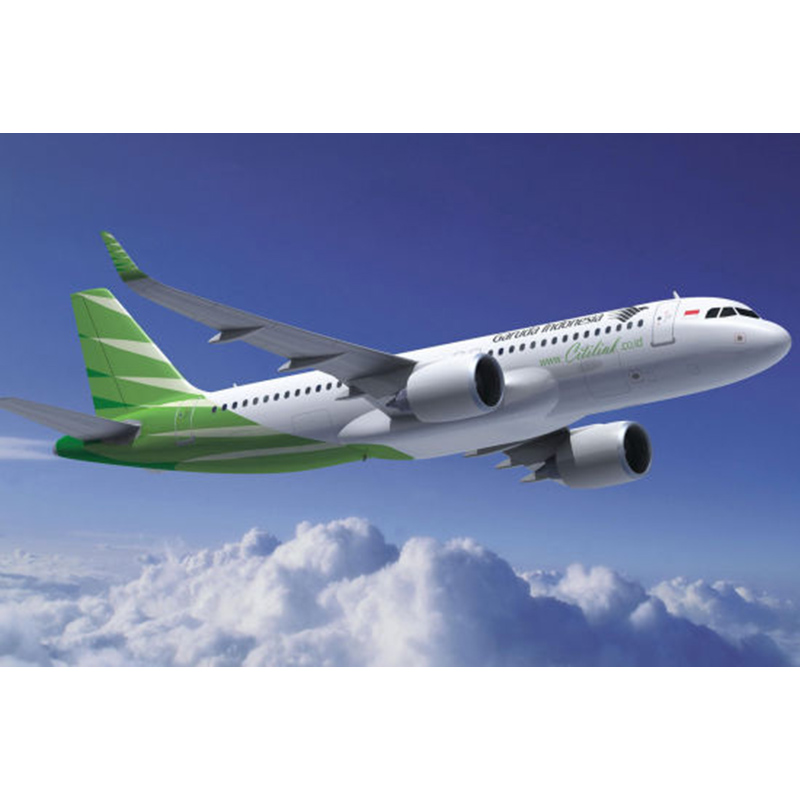Air Freight: The Fast and Reliable Solution for Global Shipping
2025-03-12
In today’s interconnected world, businesses and consumers alike require fast and reliable delivery of goods. Whether it's raw materials, electronics, pharmaceuticals, or luxury goods, air freight has become a cornerstone of the global supply chain. This method of shipping offers unparalleled speed and efficiency, making it the preferred choice for time-sensitive shipments. In this blog, we will explore what air freight is, its benefits, challenges, and why it has become an essential part of modern logistics.
What is Air Freight?
Air freight refers to the transportation of goods by aircraft. It involves the movement of products, parcels, and freight via air transport to their destination, whether domestically or internationally. Air freight services are provided by commercial airlines, cargo carriers, and specialized logistics companies. Air freight is often used for high-value, urgent, or perishable items, where speed is crucial to meet business and consumer demands.
Unlike ocean freight, which can take weeks to reach its destination, air freight typically delivers goods within days or even hours, depending on the distance and the specific service chosen. This speed makes air freight particularly popular for industries where time is of the essence.
Key Benefits of Air Freight
1. Speed and Efficiency
The most significant advantage of air freight is its speed. Airplanes can travel across long distances in a fraction of the time it would take for goods to reach their destination by sea or land. For businesses that need to move products quickly, whether to meet market demands or keep production lines running smoothly, air freight is the best option. This quick delivery is especially valuable for perishable goods like fresh food and flowers, where time is a critical factor.
2. Reliability and Consistency
Air freight is known for its reliability. Airlines operate on tight schedules, and there is a lower risk of delays compared to other forms of transport like sea freight or rail. Most air freight services offer guaranteed delivery dates, making it easier for businesses to plan their supply chain. Airlines also have robust tracking systems that allow shippers to monitor their goods in real time, ensuring a secure and efficient shipping process.
3. Global Reach
Air freight provides global coverage, connecting countries and regions that may be inaccessible by other means of transportation. This worldwide reach opens up new markets and opportunities for businesses, allowing them to expand their operations and trade globally. Whether it's shipping goods to a nearby city or across continents, air freight can deliver wherever the destination is, thanks to international airports and aviation networks.
4. Security and Safety
Air freight offers a high level of security, especially for high-value goods. Airports and airlines implement strict security measures to ensure the safe transportation of cargo. This is crucial for industries dealing with valuable products such as electronics, jewelry, and pharmaceuticals. Furthermore, air freight minimizes the risk of theft and damage, as goods are handled more carefully and transported in climate-controlled environments when necessary.
5. Flexibility in Shipments
Air freight offers flexibility in the types of goods that can be shipped. Whether it's a small package or large, bulky cargo, air freight providers can accommodate various sizes and weights of goods. Different types of aircraft and freight services are available, such as express air freight for urgent shipments, or bulk air cargo for larger loads. This adaptability makes air freight a versatile solution for various industries.
Common Types of Air Freight Services
1. Standard Air Freight
Standard air freight is the most common option for shipping goods by air. This service provides reliable transportation, with scheduled flights and predictable delivery times. It's suitable for non-urgent goods that still need to be transported quickly, like electronics or clothing.
2. Express Air Freight
For shipments that require immediate delivery, express air freight is the solution. This service guarantees fast delivery, often within 24 to 48 hours. Express services are typically used for highly time-sensitive items like medical supplies, perishable goods, and emergency shipments.
3. Charter Air Freight
In cases where standard air freight services are unavailable or unsuitable, charter air freight offers a more specialized solution. This involves hiring an entire aircraft to transport large or oversized cargo. Charter services are ideal for shipments that exceed standard size limits or for time-sensitive deliveries when other options are unavailable.
4. Air Cargo Consolidation
Air cargo consolidation is a cost-effective solution for smaller shipments. In this service, goods from multiple shippers are grouped together on the same flight, which reduces costs by sharing the expenses of the aircraft. While it may not offer the same speed as express services, it still provides the benefits of air transport at a lower price point.
Challenges of Air Freight
While air freight offers many advantages, it also comes with its challenges.
1. Cost
Air freight is generally more expensive than sea or land transport, making it less suitable for large, low-value shipments. The cost of air freight depends on factors such as weight, size, and destination. For businesses looking to save on shipping costs, it may not always be the most economical option, especially for bulky or non-urgent goods.
2. Limited Cargo Capacity
Aircraft have limited cargo space, which can make it challenging to ship large quantities of goods. For industries with high-volume shipments, air freight may not be the most viable option due to space constraints. Additionally, oversized cargo may require special handling or chartered flights, further increasing the cost.
3. Environmental Impact
Air transport is one of the most energy-intensive forms of shipping, with higher carbon emissions than sea or land transport. As environmental concerns grow, businesses are under increasing pressure to reduce their carbon footprint. However, many air freight companies are working on improving the sustainability of their services through more efficient aircraft, carbon offset programs, and greener aviation technologies.
Conclusion
Air freight has undoubtedly revolutionized the way goods are shipped globally. Its speed, reliability, and global reach make it the preferred choice for time-sensitive and high-value shipments. Despite its higher cost, air freight remains an essential part of the supply chain for businesses and industries that require quick and secure transportation. As the demand for faster and more efficient logistics continues to grow, air freight will undoubtedly play a pivotal role in shaping the future of global trade.
Whether you’re a business owner looking to expedite your shipments or a consumer eager for faster deliveries, air freight provides a valuable solution. The evolution of air transport and logistics continues to open new possibilities, and the benefits of air freight will remain a cornerstone of the modern shipping world.



